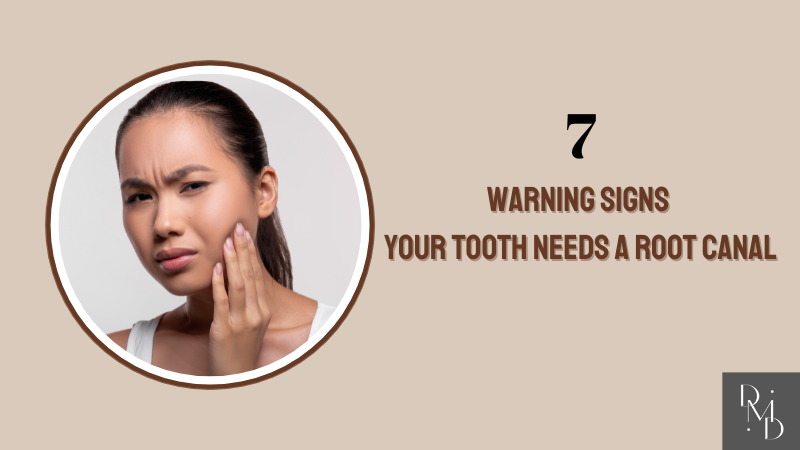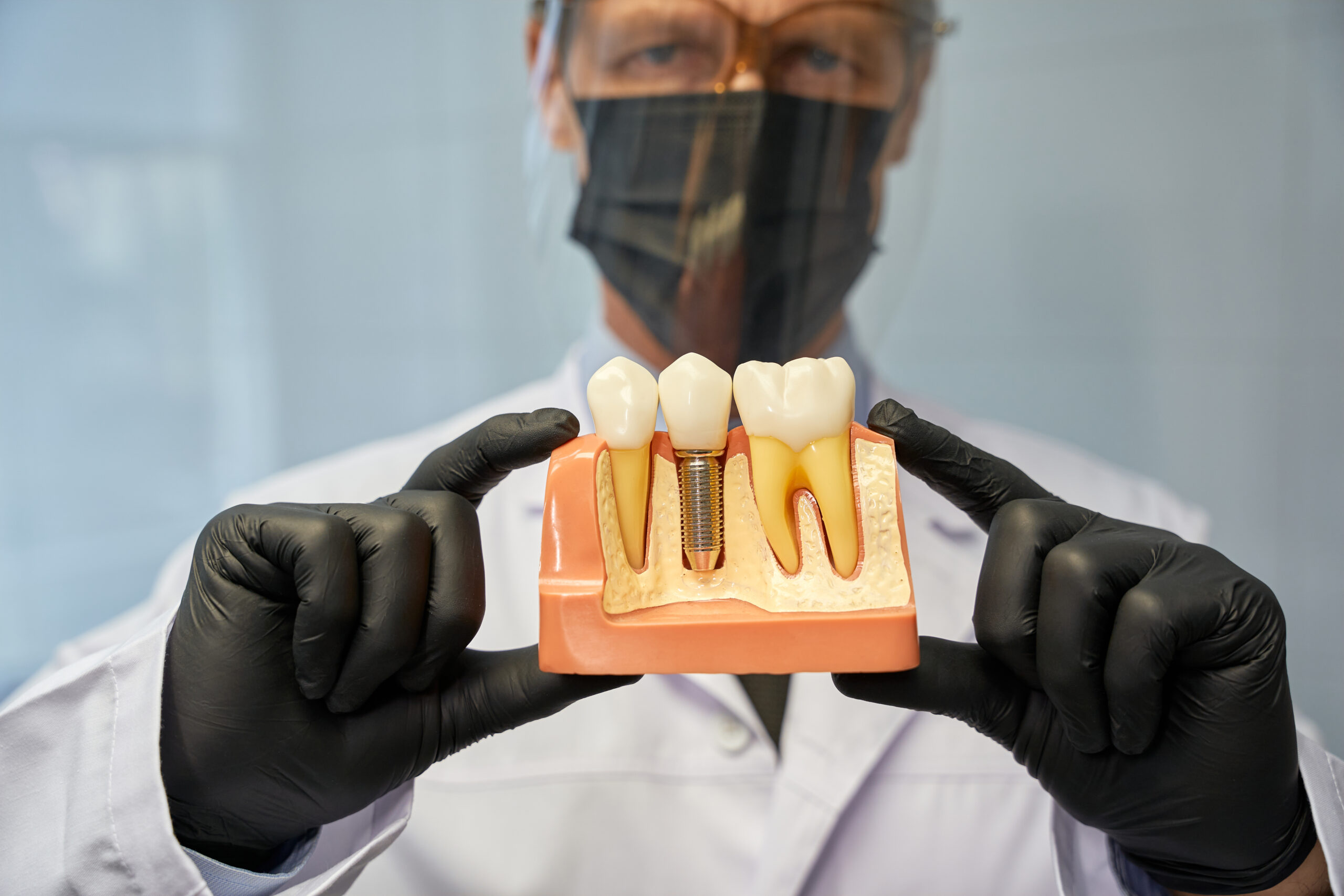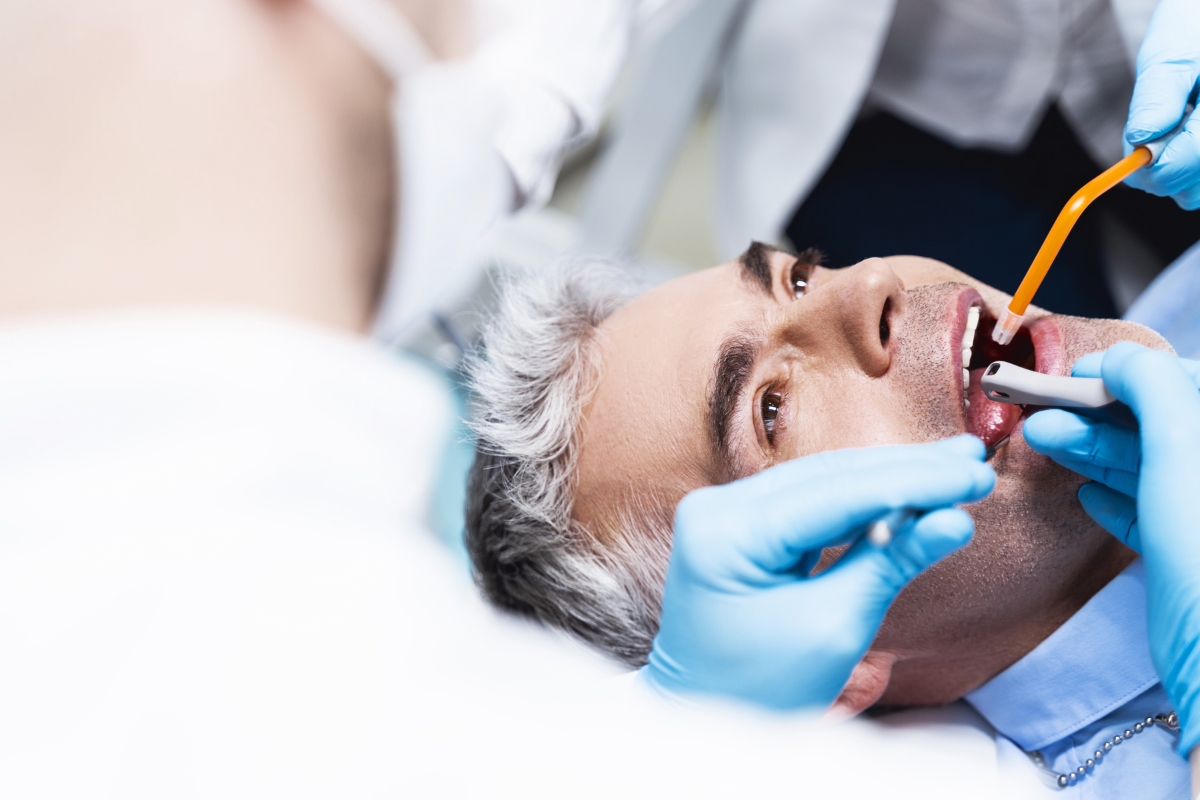
7 Warning Signs Your Tooth Needs a Root Canal
March 26, 2024
Root Canal
A root canal infection presents a significant threat to oral health. This severe infection occurs when bacteria completely cover the inside chamber of your tooth due to untreated tooth decay. It’s crucial for individuals experiencing a root canal infection to promptly seek dental care, as the infection can rapidly spread.
As the bacteria gradually infiltrate the soft pulp material of the inner tooth layer, the infection exacerbates. Root canal therapy, performed by a dentist, involves removing the infected pulp to restore the tooth.
This blog post delves into the world of root canal infections, exploring the most visible signs that might indicate you need this treatment. We’ll also address a common concern – can a root canal actually cause bad breath? By understanding the root (pun intended) of the problem, you can make informed decisions about your dental health and get the treatment you need to keep your smile bright and pain-free.
Purpose of Root Canals:
Our teeth may seem like solid structures, but they have a complex inner world. At the center lies the pulp, a soft tissue containing nerves, blood vessels, and connective tissue. This pulp keeps the tooth alive and helps it sense hot and cold.
However, when bacteria invade the pulp through a deep cavity, crack, or repeated dental procedures, an infection can develop. This infection can cause the pulp to die, leading to a root canal infection.
7 Warning Signs You Might Need a Root Canal
Source: Smile on You and Blessed Smile Dentistry;
Here are the top 7 signs that might indicate you need a root canal:
Persistent Pain: This is the most common symptom of a root canal infection. The pain can be throbbing, sharp, or dull and may worsen with pressure, hot or cold drinks, or chewing.
Tooth Darkening: A tooth with a root canal infection may start to discolor, appearing darker than neighboring teeth. This happens because the blood supply to the tooth is cut off.
Dental Abscess: An abscess is a pus-filled pocket that forms at the tip of the tooth’s root. It can cause a visible bump on the gum near the infected tooth, often accompanied by facial swelling and tenderness.
Chronic Bad Breath (Halitosis): While bad breath can have various causes, a persistent unpleasant odor can be a sign of a root canal infection. The decaying pulp tissue and bacteria emit foul-smelling gases.
Swollen Gum Area: Inflammation and swelling of the gum tissue around the infected tooth are common signs of a root canal infection. This can be accompanied by tenderness and discomfort when touching the area.
Sensitivity to Pressure: Even without hot or cold stimuli, the tooth might feel sensitive to biting or chewing, indicating inflammation and potential infection.
Swollen Lymph Nodes: In some cases, the lymph nodes near the jawbone (under the chin or near the angle of the jaw) may become swollen and tender due to the body’s response to the infection.
Can a Root Canal Actually Cause Bad Breath?
While a properly performed root canal aims to eliminate the source of bad breath (the infection), in rare cases, temporary bad breath may occur after the procedure. This can be due to:
Anesthesia Effects: The anesthesia used during the procedure can temporarily alter your taste and smell, leading to a perceived change in breath.
Residual Infection: In rare cases, a small amount of infected material might remain after the root canal, causing temporary bad breath.
However, maintaining good oral hygiene practices – thorough brushing and flossing – after a root canal is crucial to prevent lingering bad breath.
The Importance of Thorough Cleaning During Root Canal Treatment
A critical aspect of a successful root canal treatment is a thorough cleaning of the infected tooth’s canals.
During the procedure, the dentist removes the infected pulp and cleans and disinfects the canals – tiny passageways within the tooth’s root that contain nerves and blood vessels. This thorough cleaning is vital to eliminate bacteria and prevent the infection from spreading.
Why Root Canals Can Cause Bad Breaths?
Did you know that root canals could be a contributing factor to bad breath? Let’s delve into this topic to understand why.
A root canal is a dental procedure aimed at treating infections within the tooth’s pulp, which houses nerves, blood vessels, and connective tissue. During this procedure, the gums may become swollen and tender, creating pockets where bacteria can accumulate and thrive. These pockets can be challenging to clean effectively, further exacerbating bad breath.
Importance of thorough cleaning during root canal treatment:
Thorough cleaning during root canal treatment is paramount for the procedure’s success. It plays a pivotal role in eliminating bacteria and infected tissues from the root canal, thereby halting the progression of infection and facilitating the healing process. Additionally, meticulous cleaning ensures that the tooth can be adequately sealed, reducing the likelihood of reinfection and enhancing the prospects of preserving the tooth’s integrity.
Furthermore, prioritizing thorough cleaning is essential to maximize the benefits of root canal therapy and promote the overall success of the procedure.
Don’t Let the Root of the Problem Linger: Visit Your Dentist in Matthews
If you’re experiencing any of the warning signs mentioned in this blog post, it’s important to schedule an appointment with your dentist in Matthews as soon as possible. Early diagnosis and treatment of a root canal infection can save your tooth and alleviate pain.
Remember, your dentist is your partner in maintaining good oral health. By addressing potential problems early on, you can prevent more serious complications down the road and keep that smile shining brightly!
More Blog Posts

How Long Do Dental Crowns Last and What Affects Their Lifespan?

Correcting Tooth Gaps: Using Dental Veneers to Fix Diastema Without Braces in Matthews

Why Dr. Dawson Recommends Root Canal Over Extraction

Celebrating Dr. Ashley Dawson: Honored as One of America’s 40 Under 40 Top Dentists for 2025


